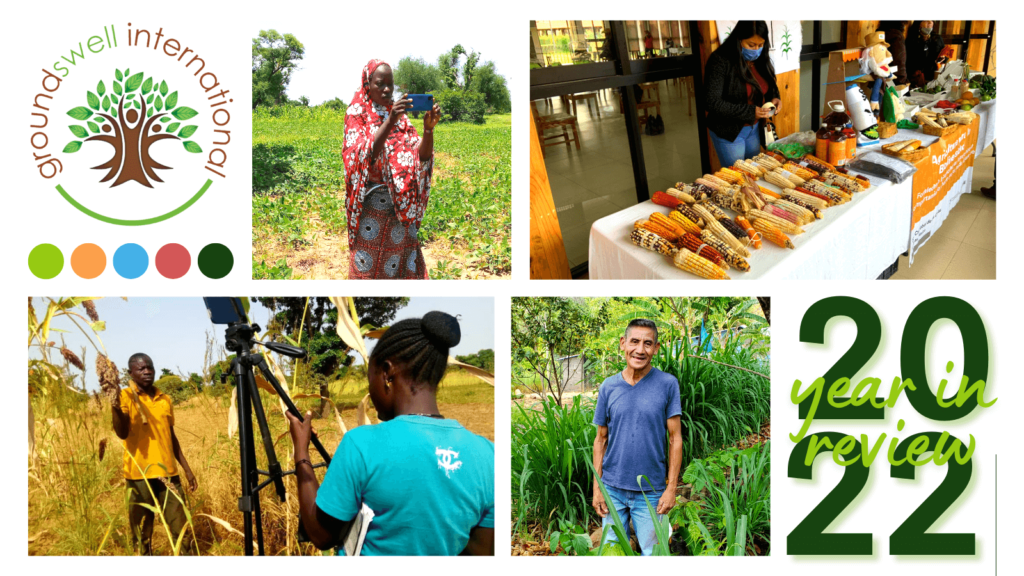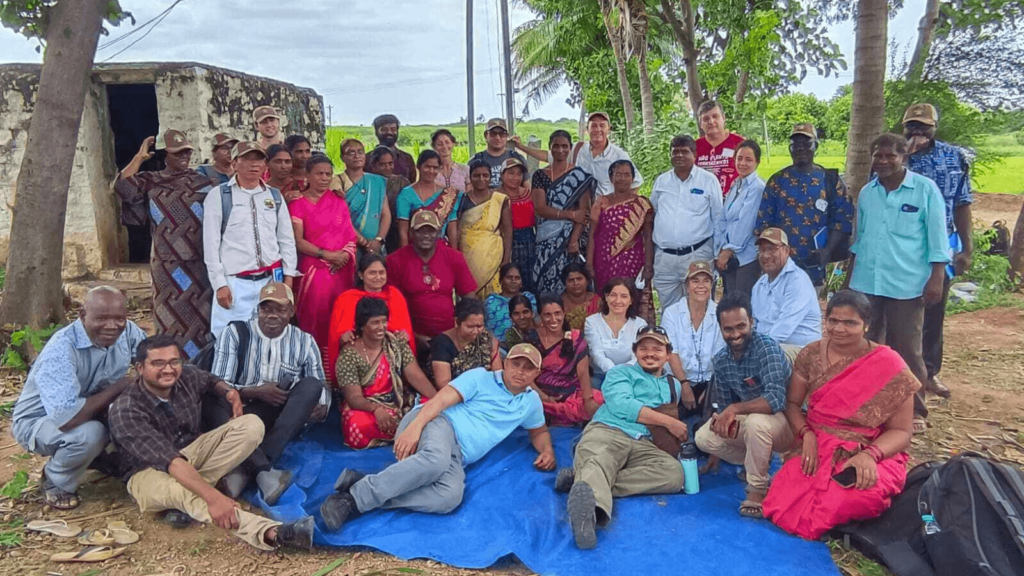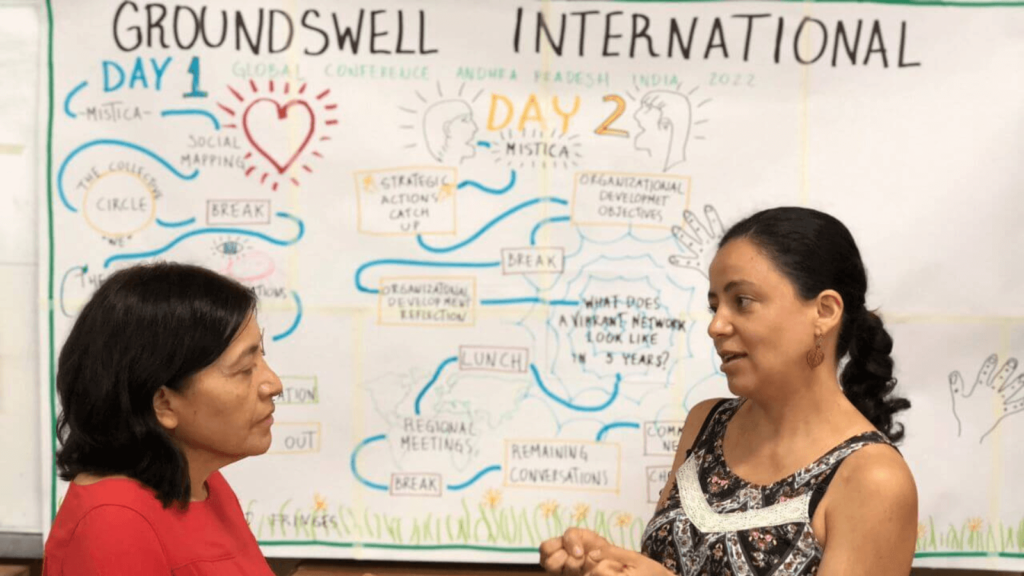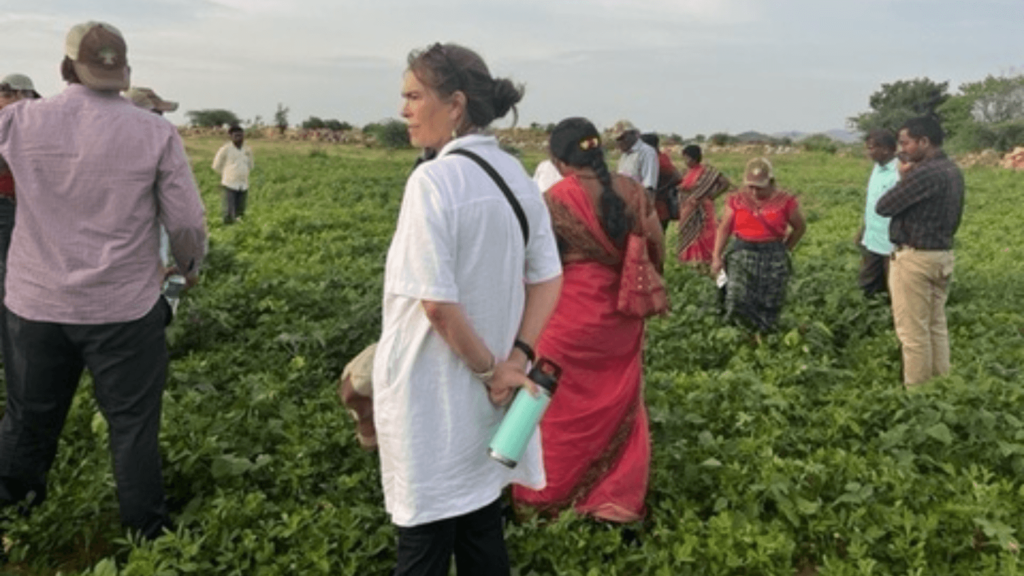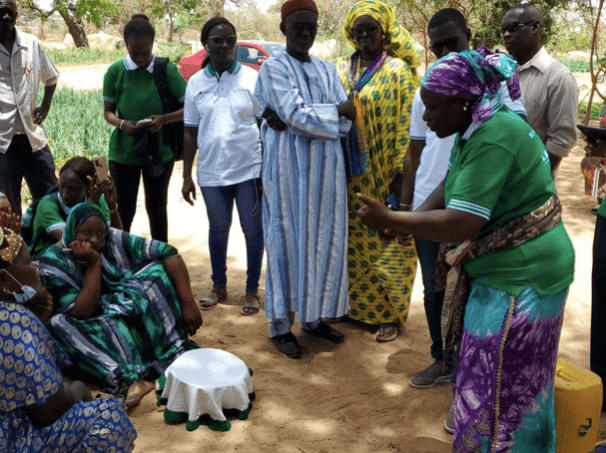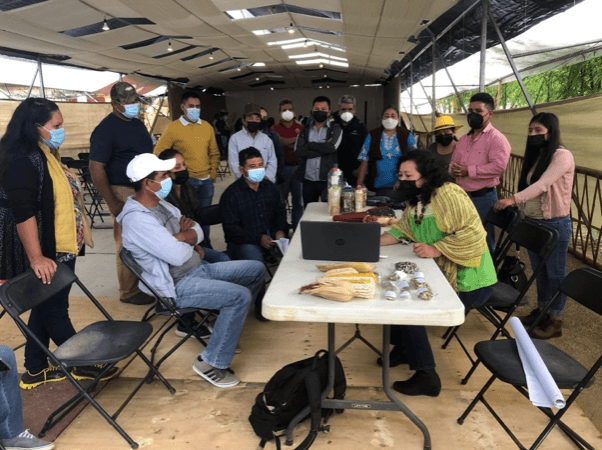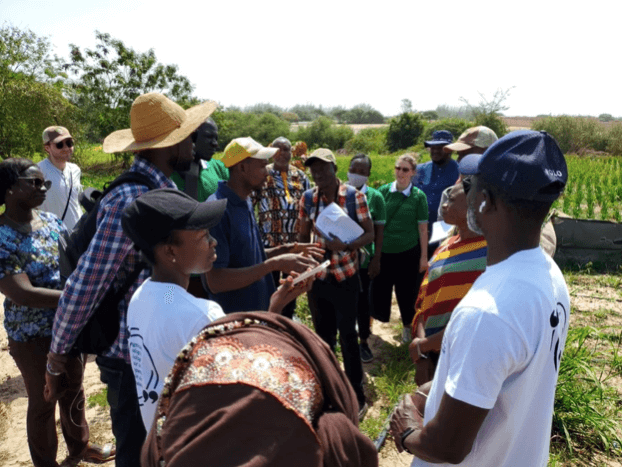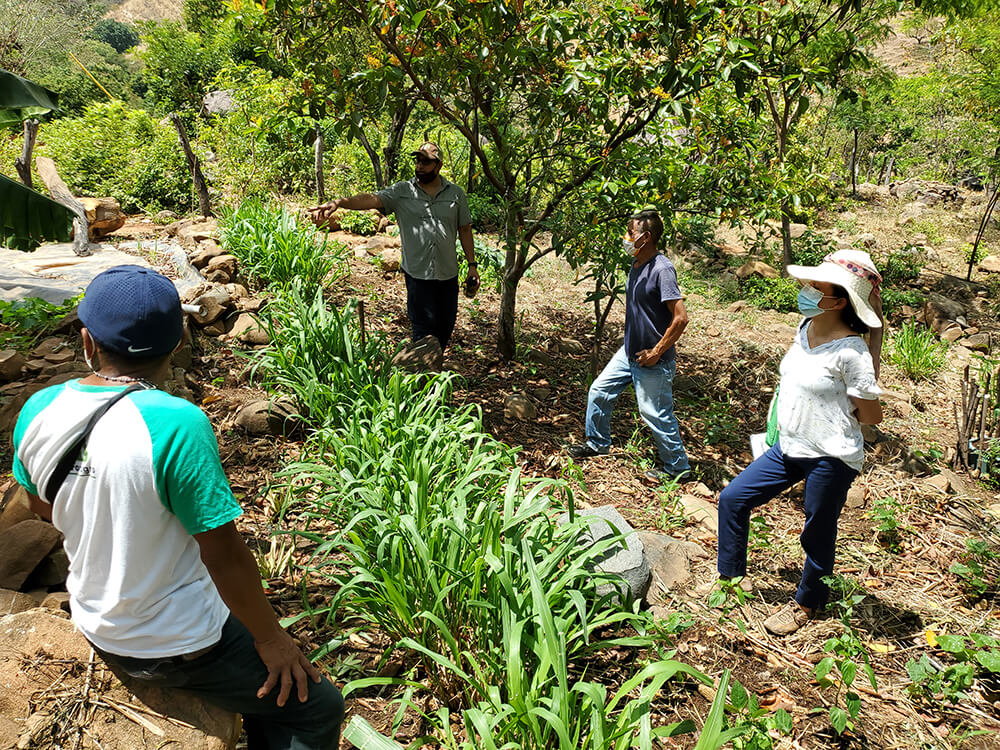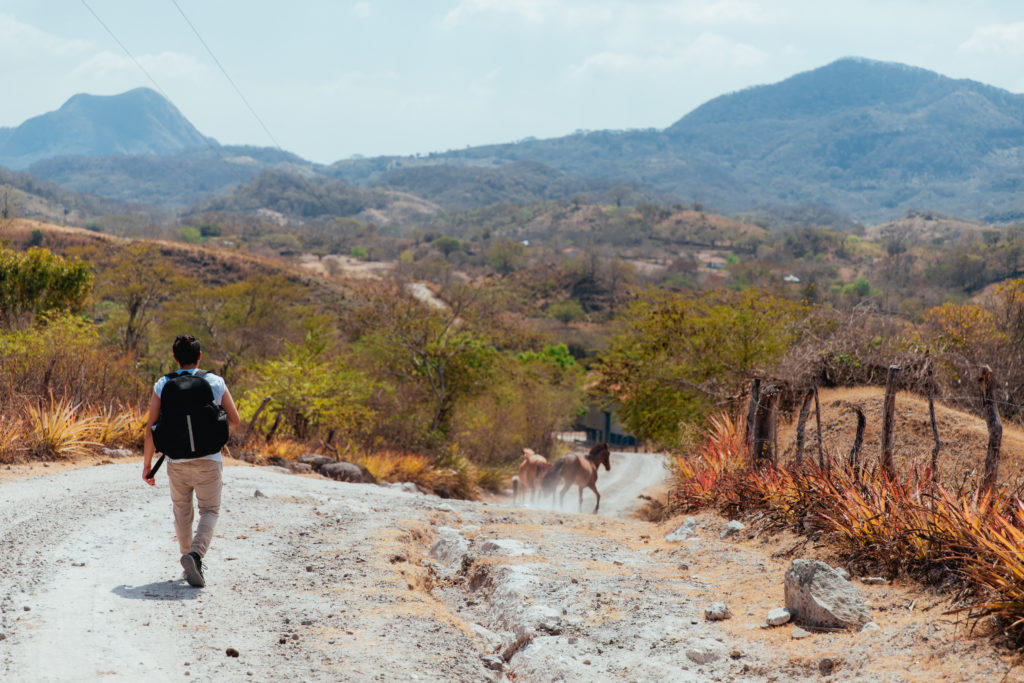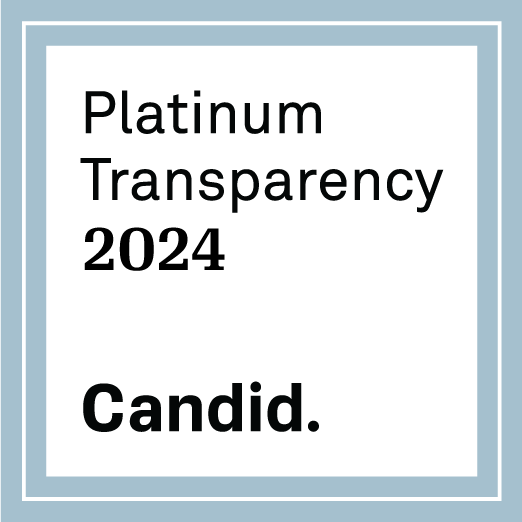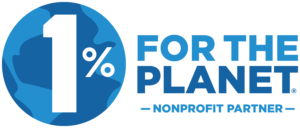2023 marked a significant year for Groundswell International, our partner organizations, and the communities in our programs. It brought a series of ongoing triumphs and remarkable displays of resilience within the communities we support. Furthermore, this year witnessed our message about the pivotal role of agroecology in cultivating robust agricultural and food systems starting at the grassroots level, reaching more people than ever before. Help us continue our vital work today, for a better 2024.
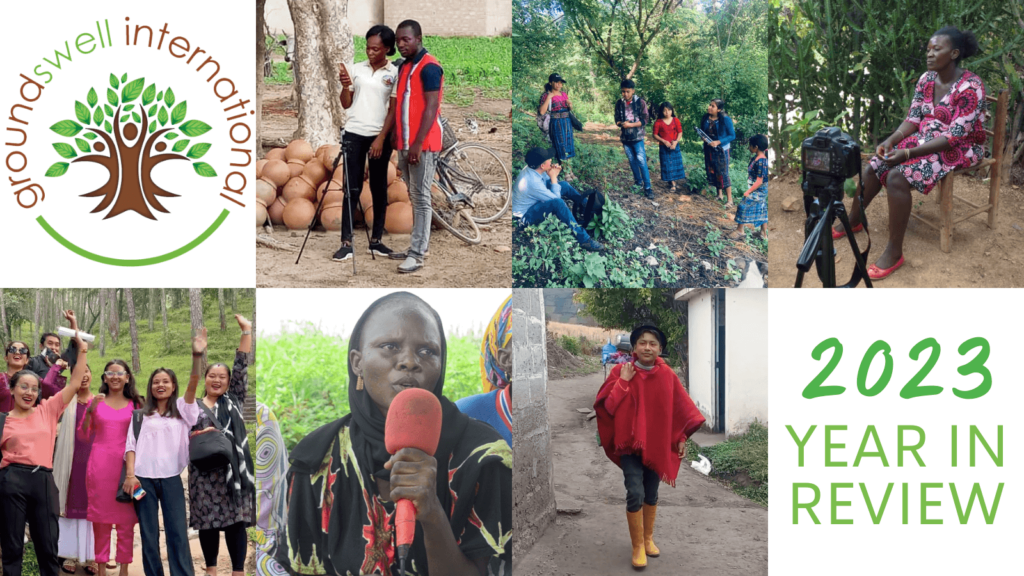
Youth Storytellers and the 2nd Annual “Field to Film: Youth Storyteller Film Festival”
Launched in 2021, our Youth Storyteller program has continued to thrive thanks to generous support from funders and donors. We were able to expand the program to include more youth from additional countries, allowing us to include seven participating countries this year: Burkina Faso, Honduras, Ecuador, Nepal, Haiti, Guatemala, and Senegal.
The Youth Storytellers Program has enabled Groundswell International and our partners on the ground in seven countries to support young people to become powerful communicators for social change, create a people-centered, agroecological counter-narrative opportunity for young people, and empower youth to capture the experiences and daily lives of rural smallholder farmers in their communities.
During our 2nd Annual film festival on December 1, 2023, we heard incredible stories of how farmers and communities are creating and spreading healthy farming and food systems from the ground up.
If you weren’t able to join us for the virtual film festival, you can watch it in its entirety here!
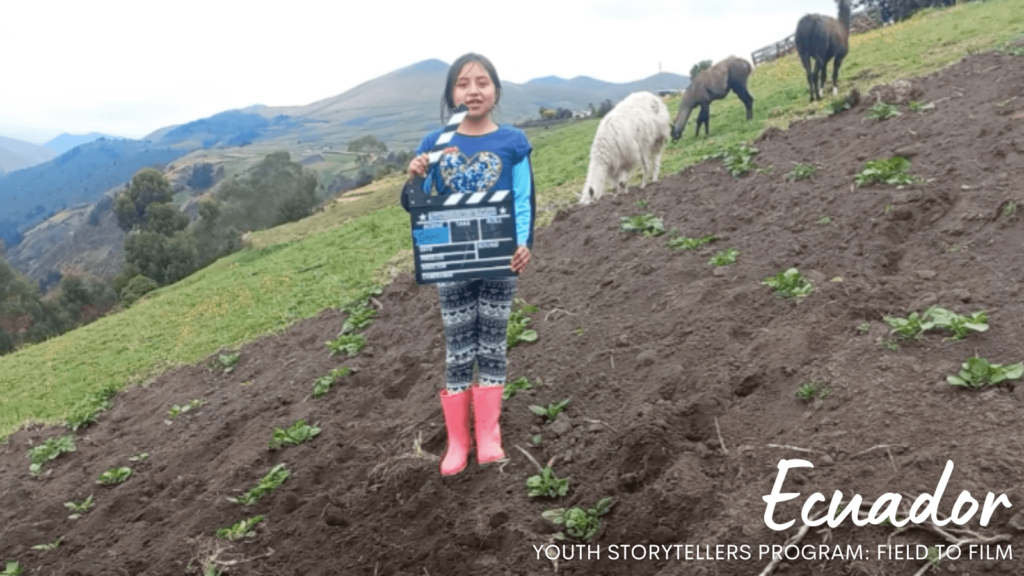
Stories from the Field: Binda and Radha
Jacob Brescia-Weiler, son of Groundswell Executive Director Steve Brescia, visited Nepal and met with two women farmers, Binda and Radha. He wrote about his experiences, seeing firsthand how programs from Groundswell and our partner organization on the ground are empowering women to better support their families and communities.
Binda Ayu is a tomato farmer in the Sindhuli district of Nepal. As a member of the Creative Women’s Group, the first savings and credit cooperative of its kind in the area, she is supported by Groundswell International and its local partner organization, Sindhuli Integrated Development Services (SIDS/Nepal). Binda employs plastic tunnels to farm tomatoes year-round, which protects them from extreme climatic conditions, and also cultivates a variety of other vegetables, including cabbage, cauliflower, cucumber, cowpea, and bitter gourd, depending on what is in season. Her flourishing productivity has encouraged Binda to shift her focus from only subsistence-level farming to local commerce, bringing her newfound financial independence. Read Binda’s story here.
Radha Purkoti is a livestock and vegetable farmer in the Kavrepalanchok District of Nepal and is a member of the Jaruwa Sustainable Farming Group. The program she takes part in is supported by Groundswell and Boudha Bahanupati Project – Pariwar (BBP-Pariwar). Along with mobilizing savings and credit and increasing their agricultural production, this program supports women farmers in accessing livestock and increasing their incomes. Previously, Radha’s husband had been the primary breadwinner in the family. Now, Radha is able to make a more substantial financial contribution to her personal and family expenses, strengthening her sense of autonomy and decision-making power in her family and community. Read Radha’s story here.
Fertile Ground: Republication with Practical Action
On November 15, 2023, our book, “Fertile Ground: Scaling Agroecology from the Ground Up,” edited by Groundswell’s Co-Founder and Executive Director Steve Brescia, was re-released as an open-source edition by Practical Action Publishing.
Since the first release of this book in 2017, global events have continued to underscore our initial motivation for recording and disseminating these invaluable agroecological case studies, along with the profound insights and recommendations they provide.
Download Fertile Ground for free here or purchase the book here.
Evidence of Impact in Haiti
In collaboration with Altus Impact, the Economics of Land Degradation (ELD) Initiative, and others, we published a new policy brief outlining new evidence of the impact of agroecology as a poverty solution in Haiti. Evaluators surveyed 330 households from three communal sections in northern Haiti and compared the farm budgets (the value of all production, less all costs of all inputs and labor) of agroecological versus conventional farmers. They also analyzed satellite data to validate land productivity of the surveyed farms.
Key findings of the report include:
- The adoption of agroecological farming leads to impressive increases in productivity and a doubling of per-hectare profitability in the program area.
- Controlling for inputs and labor, typical agroecological farmers have gross annual crop incomes that are US $437 higher per hectare than average conventional farmers.
- Satellite data confirmed higher land productivity, vegetative cover, and climate resilience for agroecological plots, even when receiving less rainfall.
- Agroecological practices can increase water retention and carbon sequestration in the soil, reduce topsoil losses and mudslides, and increase food security.
Read the policy brief, “Agroecological farming in Haiti: A poverty crisis solution,” here. Or, you can watch the webinar presentation of the policy brief here.
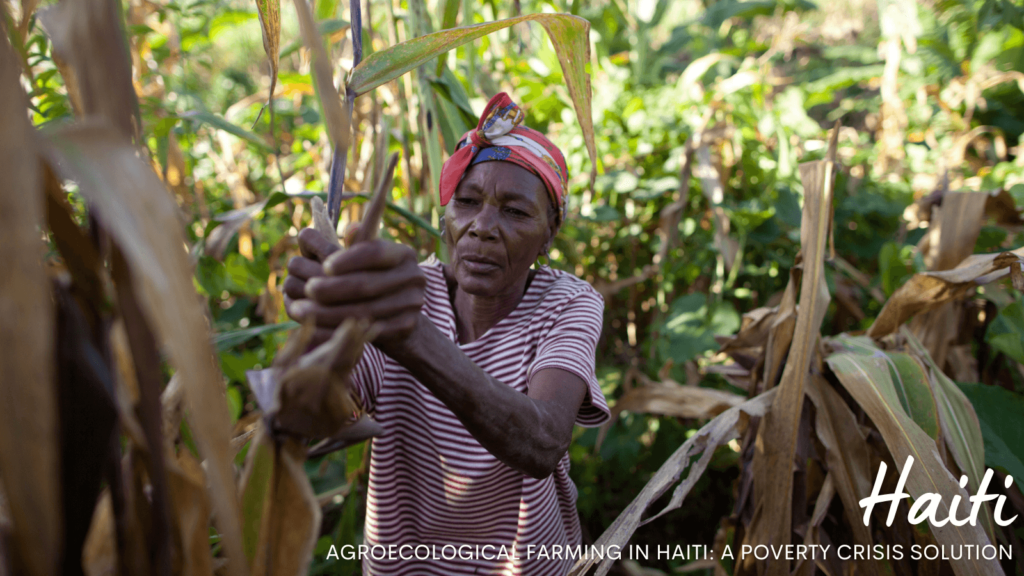
In Case You Missed It: Stories from 2023
- In September, we met for our Global Summit in Nepal, where we engaged with each other in discussions of ideas, processes, key thematic focuses, challenges, and areas of learning in each team member’s region, as well as the planning, budgeting, monitoring & evaluation for 2024 programs. We visited the Sinduhli region of Nepal and met with our Nepalese partners on the ground, Sindhuli Integrated Development Services and BBP-Pariwar.
- Edwin Escoto, Groundswell’s Regional Coordinator for Latin America and the Caribbean, witnessed how passionate the indigenous people (Maya Achi) are about preserving their native seeds, symbols of their identity, culture, and resistance during his trip to Guatemala. Read more about Mayan Seeds of Hope here and watch a related feature on a Mexico seed project on our YouTube channel to understand how these types of projects make an impact for the smallholder farmers.
- In response to the global food crisis, and along with introspection of our own progress, strengths, and challenges, we, as an organization, have identified specific Strategic Framework Goals for 2023 – 2027. Read the overview of our Strategic Framework here.
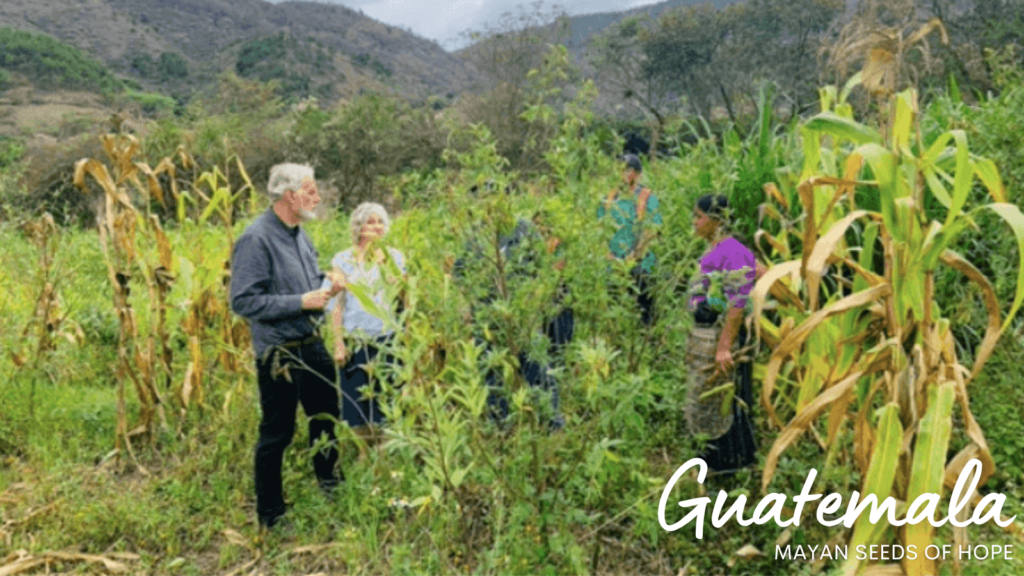
Support even more progress and action in 2024
The strides we take each year are only achievable thanks to the generous financial support from individuals worldwide. If you share a passion for enhancing food security in rural communities, reversing the impacts of climate change and food industrialization, and empowering communities to construct sustainable farming and food systems from the grassroots, we kindly invite you to make a donation to Groundswell International. Your contribution can make a significant difference in our mission.
Support Groundswell for free when you shop from Amazon using AmazonSmile. Go to smile.amazon.com and choose Groundswell International as your desired charity, or in the Amazon app find “Settings” in the main menu (☰) and tap on “AmazonSmile” to set your charity of choice. Visit smile.amazon.com every time you shop on Amazon so that Groundswell International will receive a donation for every qualifying purchase you make at no cost to you.
Additional ways to support Groundswell:
- Subscribe to our email newsletter
- Follow us on social media
We appreciate your participation in our mission throughout 2023, and we eagerly look forward to your continued support in 2024 as we persist in our efforts and bring forth more narratives of hope, resilience, and sustainable solutions from the field. See you in the new year!

